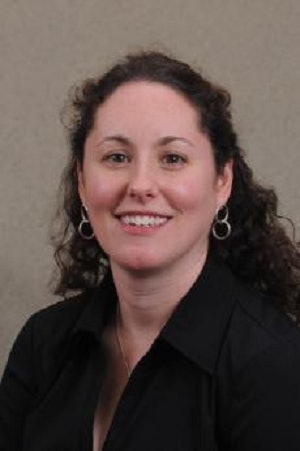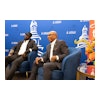By the fall of 2020, this nation had experienced uncertainty paralleling its most unsettling historical moments. We were collectively holding our breath while attempting to reconcile the harsh realities of our country’s racial injustices as they played out in social movements and civic moments, and through the racialization of the pandemic virus. There were no assurances of a vaccine, no healing from our summer of discontent, and the anxiety of an unpredictable election and its ultimately contested outcome only amplified the wail of an increasingly divided nation.
Educators and institutions of higher learning felt this pain, and many responded with calls to confront the systemic inequities of education reverberating throughout the academy. Collaborative work produced anti-racist action plans, diversity, equity, and inclusion statements, and revised departmental and program curriculums. But here, too, we witness imbalances, with departments and programs in some divisions carrying the load of this essential and timely work.
 Dr. Cathy Marie Ouellette
Dr. Cathy Marie OuelletteAt my own liberal arts institution, the majority of diversity and social justice offerings are housed in the humanities. These classes are oriented towards anti-racist and decolonial frameworks that examine how structural racism and colonial ideologies have impacted and continue to effect social, political, economic, racial, ethnic, and gendered disparities. These inquiries are at the heart of our commitment to diversity, equity, and inclusion, and are integral to our professions as outlined by our guiding national and international associations.
Institutions of higher education will inevitably continue to rely upon the humanities to address shameful evidence of this country’s history of racist violence. At the same time, administrative and policy shifts embracing pre-professional and STEM programs at the expense of the humanities make for a confusing tale of the liberal arts, and of social justice. These disparate discourses not only undermine the humanistic endeavors of these critical disciplines, but they also stand in direct opposition to the values employers seek: educational breadth and depth; personal and social responsibility; integrative and applied learning; intercultural competence; and broad skills imparted in a liberal education that prioritizes intellectual and practical abilities. What can be done to reconcile these competing narratives?
Rather than dismantle fields of humanistic inquiry, administrators can empower their deeply committed faculty and programs in this difficult work. Much of this is straightforward: laud our collective contributions to teaching, professional work, and service; show our students you value them by providing research stipends available to STEM students; encourage offices of communications to center humanistic research and problem-solving in their publications and to share alumni success stories. The rigor of the humanities and its intrinsic values and ethics should be celebrated alongside the sciences.
Department chairs also play critical roles in furthering anti-racist and decolonized curriculums and commitments. Intentional and inclusive leadership results in optimal participation of faculty members. In my department, we have collectively and purposefully created topical course groupings deeply embedded in racial, social, and gendered justice in the histories of health and medicine, and of women, gender, and sexuality. These courses explore fundamental issues in global inequities, scientific racism, and power and resistance, while also building deliberate bridges between the humanities and the sciences. Graduates will be engaged citizens who are conscientious and aware of their potential to generate social impact and not preserve the status quo.
Faculty in the humanities must also adopt decisive changes in their teaching. Educating students with broad perspectives and critical historical knowledge necessitates underscoring race and antiracism, and colonialism and decolonization. In dismantling colonial influences, we must be cognizant of the ways that the decolonizing-the-syllabus mission can result in unpredictable divides between “western” and postcolonial thinkers. These binaries can act in dangerous respects by further engraining stereotypes, highlighting ideological discord, and accentuating colonial mentalities. Undoing racist and colonial mindsets and intellectual biases is a complex and lengthy process that requires dedication, persistence, and thoughtful selection of sources.
Lastly, let us remain connected to learn the most innovative ways to continue to improve upon our anti-racist work in the humanities. Just this year, UMBC and Howard University curated the 2021 Inclusion Imperative Humanities Symposium on Uncomfortable Conversations: Race, the Humanities, and Inclusion in Higher Education. Through panels on reversing inequities, fostering inclusivity, and the critical lessons of these uncomfortable conversations across the humanities, scholars offered fundamental insights into historical injustices and how to address them. But again, this essential work should not fall only upon HBCUs. PWIs must partner and collaborate in realigning pedagogical, intellectual, and institutional strategies of diversity, equity, inclusion, and social justice.
There is no doubt that it is our shared duty to educate with broad perspectives and critical historical knowledge of race, antiracism, colonialism, and decolonization in our attempts to understand the human condition. In order to address anti-racism in a timely manner, institutions of higher learning need to embrace forms of humanistic inquiry that continue to serve as the bridges connecting the past, present, and the promises of a more egalitarian future. It is invaluable to educating and producing graduates who can impart the values and ethics of humanistic inquiry, and provide context to our contemporary social and racial inequities.
Dr. Cathy Marie Ouellette is associate professor and chair of the history department and director of Latin American and Caribbean studies at Muhlenberg College.



















